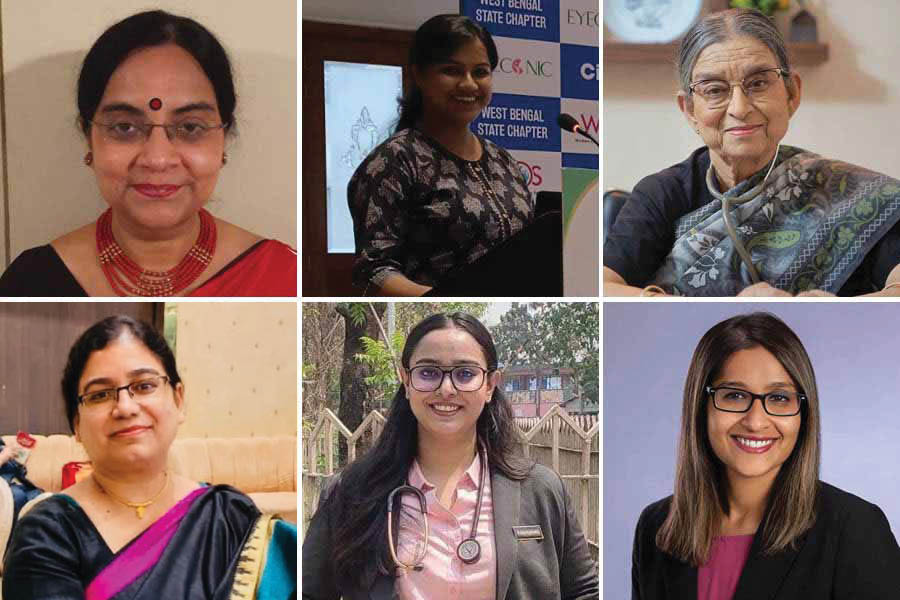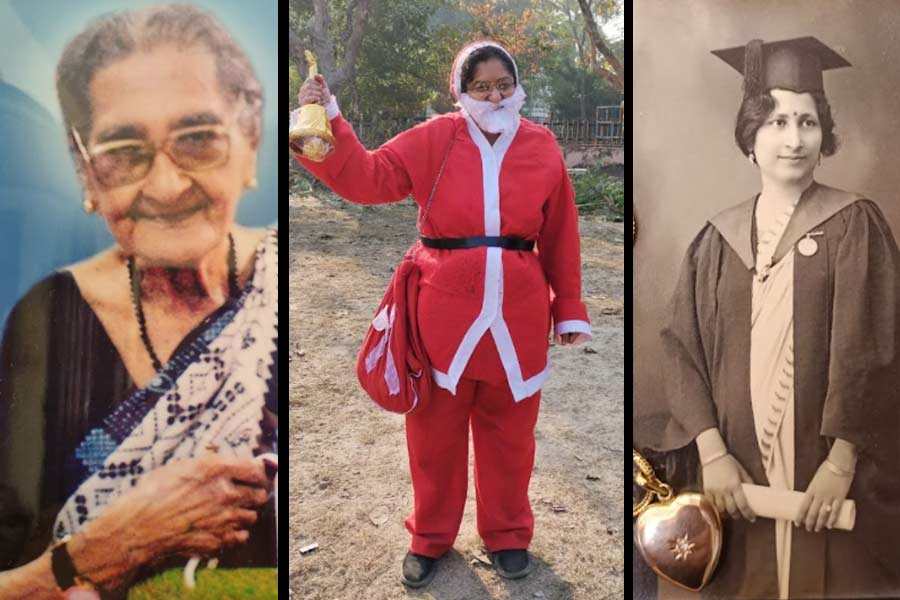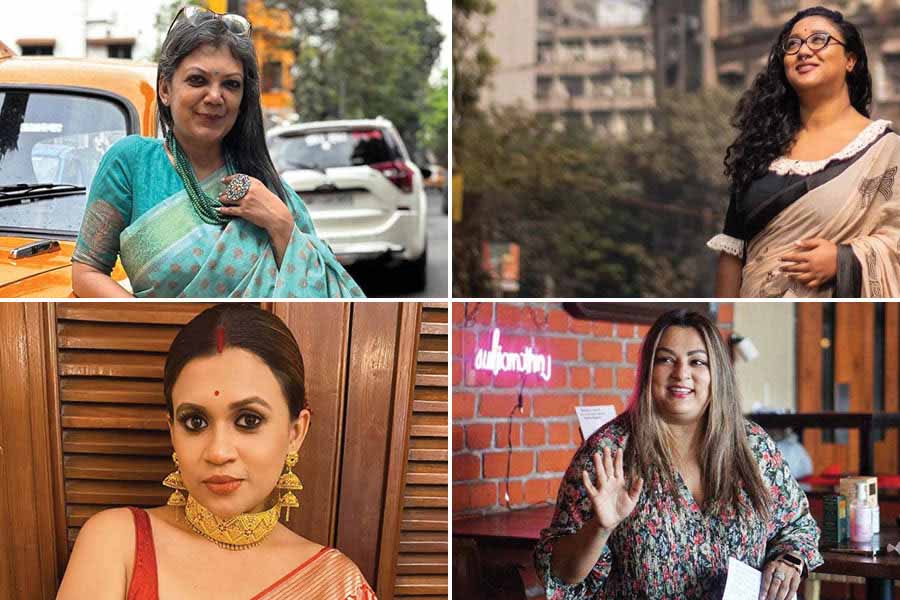Kadambini Ganguly made history when she obtained a degree from Bengal Medical College and became the first Indian-educated female doctor in 1886. Before her, Anandi Gopal Joshi had become a doctor after studying in the United States. The two, with their achievements, opened the gates of Indian education to the women of the country. Two centuries later, Indian women have forayed into the world of medicine and have succeeded. But their journey hasn’t been a bed of roses — societal expectations, sexism and patriarchy *are some of the hurdles they faced.
My Kolkata caught up with six doctors from varied specialisations and age groups as they shared their unique perspectives on the state of women’s health, their careers and more.
‘A woman still cannot be imagined beyond her role as the caregiver’
Sexism in the workplace persists, with women often facing biases and unequal treatment based on their gender. This can manifest in disparities in opportunities, pay, and expectations compared to their male counterparts — and the medical field is no exception.
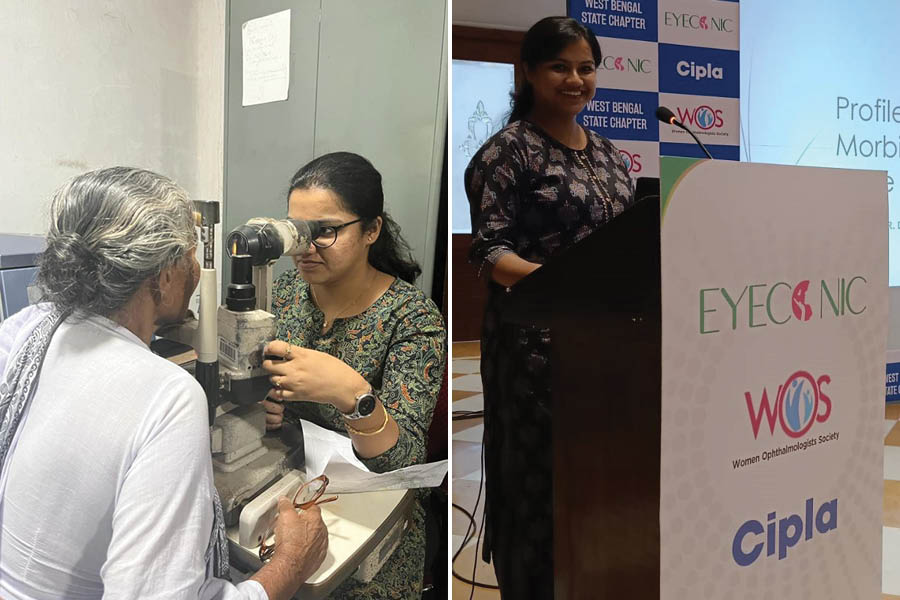
Dr Dipsha Chakraborty
“When I joined Medical College for my diploma in ophthalmology, I was newly married. When I made mistakes, I was told that my mistakes were because I was constantly thinking about taking care of my new family. The newly married men who joined me were either never reprimanded or just asked to be more careful the next time. Their ability was never questioned,” recounted Dr Dipsha Chakraborty.
Dr Sulagna Nag Chowdhury, a medical officer in cardiothoracic and vascular surgery department in a corporate hospital in Salt Lake, also had similar stories to share of sexism at workplace and places of education. “As women, we are expected to take up specialisations such as gynaecology, paediatrics or dermatology, while the men are expected to become orthopaedic surgeons and take up more demanding specialisations. When women miss work for a day, it is assumed that it’s either because of her menstrual cycle or because she is busy taking care of her family. But for a man, it’s because he is out on a holiday or at a party or at some other adventure. A woman still cannot be imagined beyond her role as the caregiver. They are best suited to take care of the family,” she explained.

Dr Sulagna Nag Chowdhury
Even though centuries passed by, times haven’t changed. When Dr Mamtaz Sanghamita, a renowned gynaecologist and former member of the Lok Sabha, was studying medicine at Medical College Kolkata, the number of women in a class of 120 was a mere 26. These women regularly outperformed the men. “The assumption was that since we are women, we get special suggestions from the professors, which wasn’t the case at all,” she added.
However, for Dr Sreejata Raychaudhuri — a clinical associate in the department of medical oncology at Tata Medical Centre, Kolkata, the experience has been better. “Even though I have been called a nurse or sister at various times by my patients, thankfully, I haven’t had to deal with men in my field who were sexist. I have had to prove myself but mostly my biggest supporters had been men who pushed me to do better.” This was also true for Dr Shabana Roze Chowdhury, a public health specialist, who never felt slighted by her male colleagues. “They were always very cooperative and protective about us,” she noted.
But Dr Bhargavi Chatterjea Bhattacharyya believes that women still have a long battle ahead of them. In her 24 years of practice as a psychiatrist, she has seen women battle family, society, and diseases to eke a corner for themselves. Even though she completed her MBBS from Medical College, Kolkata, and her MRCPsych (UK), she found male patients averse to consulting her.
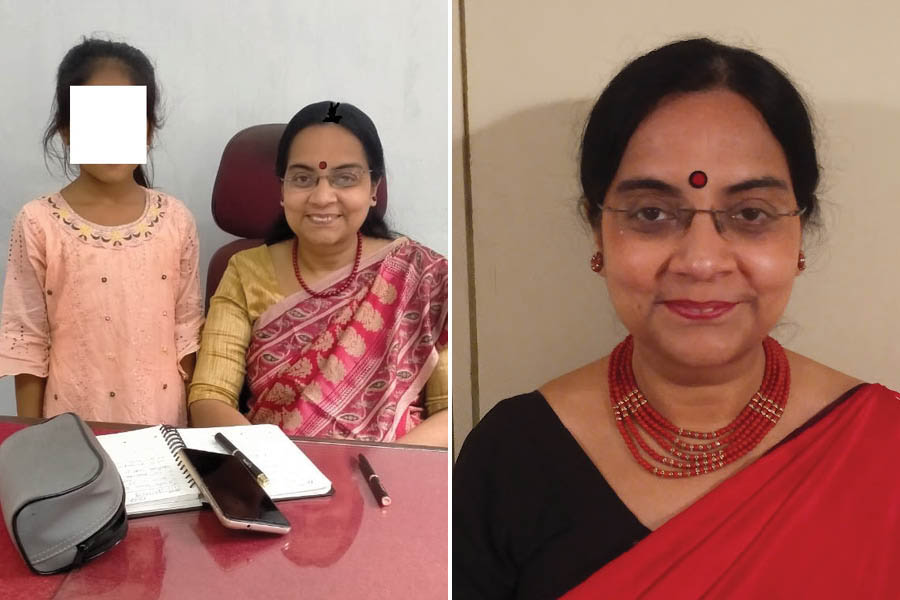
Dr Bhargavi Chatterjea Bhattacharyya
“Sometimes male patients have come to my chamber, seen that I am a woman and walked off. At other times, they have simply refused to come. This was a big challenge for me because when I started working in Kolkata, women did not have as much money in their hands. Even though they knew they were suffering, they did not have the wherewithal to access medical help. Another issue was that men did not feel comfortable opening up about their issues. This is the case even now. But I am proud that at this stage in my career, men feel comfortable talking about their issues to me,” said Bhattacharyya.
Women, both urban and rural, are expected to take care of their families. But who takes care of them?
In her book, Desperately Seeking Shah Rukh, author Shrayana Bhattacharyya writes, “The edifice of India’s economy is built by the money men make and trade held together by the invisible love and unpaid care women provide”. She then points out that Indian women put in 3.26 billion hours of unpaid care work every day. The doctors’ accounts corroborate this data. Women both urban and rural are expected to take care of their families. But who takes care of them?
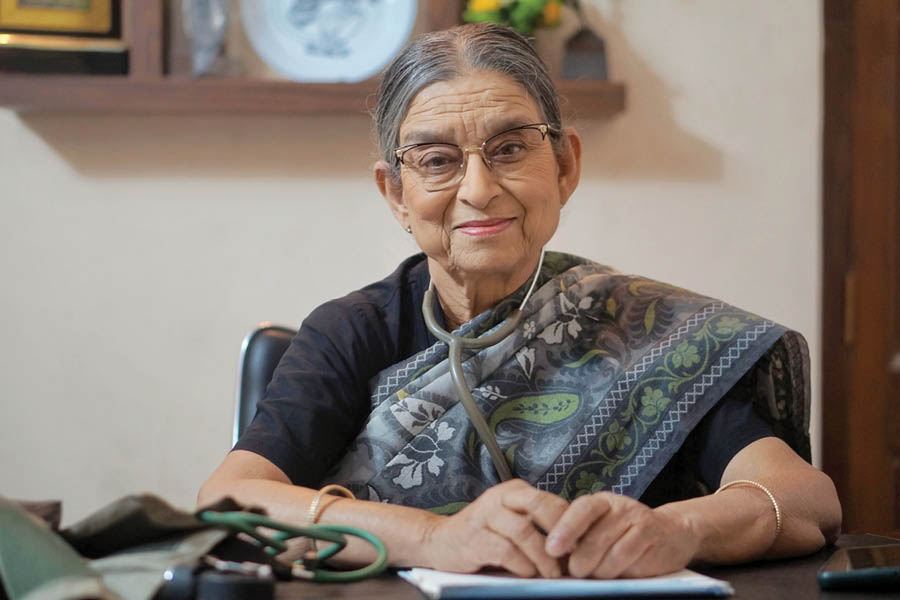
Dr Mamtaz Sanghamita
“Women feel that their ailments aren’t important enough, especially if it has to do with their reproductive health. Most of the time it’s too late when they come for treatment. Their family members also don’t consider women’s ailments to be of importance,” sid Dr Mamtaz Sanghamita who has treated countless women in her decades-long career.
“In risky pregnancies, I have seen husbands who are more concerned about the child than about the mother. Even in ophthalmology, sometimes for simple procedures like cataract operations, the father’s operation is given precedence over the mother’s because the mother can take care of the father after the operation but the father can’t do so for the mother,” says Dr Chakraborty.
As a child, Dr Shabana Roze Chowdhury often accompanied her mother Dr Mamtaz Sanghamita to rural Bengal, where her mother provided free medical care to women. During these visits, Dr Chowdhury heard conversations among the patients about experiences of violence and harassment. This exposure deeply influenced her, and since becoming a doctor, she has been dedicated to improving maternal and child health.
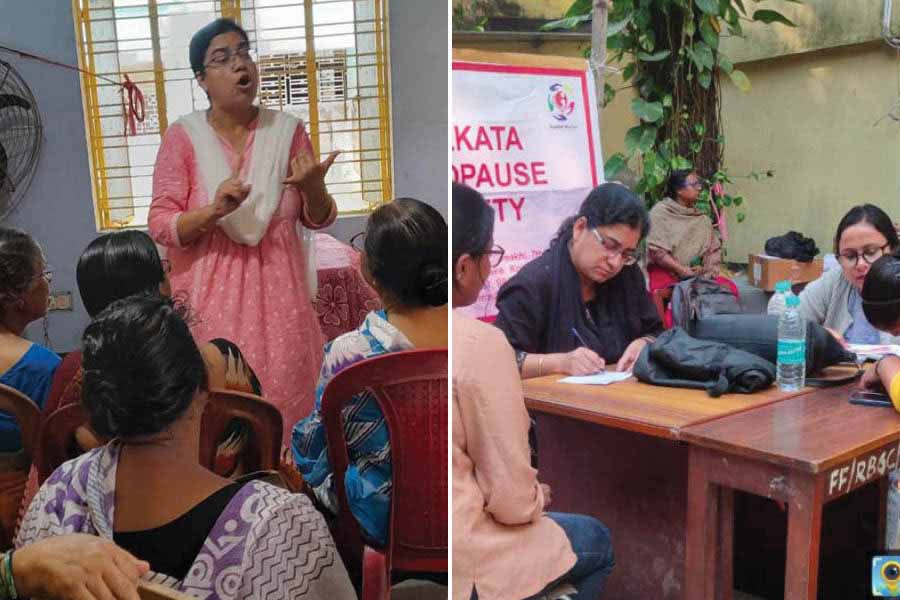
Dr Shabana Roze Chowdhury
“I have studied and worked abroad and have been in several countries where I have seen violence against women. Two of my students were physically abused by their partners in Germany. In India, women are married off at a younger age, and teenage pregnancies wreak havoc on the mother’s health. Even in elite communities, there’s discrimination against women. I know of an extremely educated female teaching staff who is being pressured by her in-laws and husband to have a male child because she’s had two female children before. She’s had two Caesarean sections which make her third pregnancy high-risk,” related Dr Shabana Roze Chowdhury.
In her two decades of practice, Dr Roze Chowdhury has found undernourishment and lack of sleep to be the biggest concerns for women’s health. “Whether it is a woman who is in the corporate sector or a woman who is a homemaker – she is always working harder than her male counterpart because she is expected to take care of all the housework. Nowadays men do help in household chores but even in those households, women work more than their partners. So lack of sleep, coupled with hormonal changes, affects women’s health across all ages,” she explained.

Dr Sreejata Raychaudhuri
“In traditional gender roles, women are burdened with household chores while also expected to manage professional responsibilities. Their mental health is often disregarded, with women being told to ‘pull themselves together’ and pressured to stop taking medication. Violence against women is prevalent, with some communities withholding food if chores aren't completed. Husbands rarely offer support for their wives’ mental health struggles, and mothers are typically held responsible for seeking psychiatric treatment for their children. Female caregivers are predominant, while men generally offer logistical rather than emotional support,” remarked Dr Bhattacharyya.
Advice for the future generation of doctors
What advice then do the doctors have for the upcoming generation of women? “I think women should evaluate why they want to become doctors. They should take pleasure in healing and treating others. This is a profession that needs more than intellect, sincerity, and dedication. I believe if you have passion for your work, you can survive any challenges that are thrown at you,” suggests Dr Roze Chowdhury. Her mother Dr Mamtaz Sanghamita also emphasises on young doctors prioritising their love for the profession rather than the glory that comes with it.
The younger generation of doctors, however, insists on never settling. “Do not take ‘no’ for an answer. Take up space and speak about the sexism that is so rampant. My wish for the future generation of female doctors is that they don’t choose the easier route just because it is easier to succeed. If we don’t make the changes who will?” asks Dr Nag Chowdhury.
Dr Dipsha Chakraborty and Dr Sreejata Raychaudhuri echo the same message – “Do not let anyone tell you that you aren’t capable enough. Pursue your dreams and never settle.”
